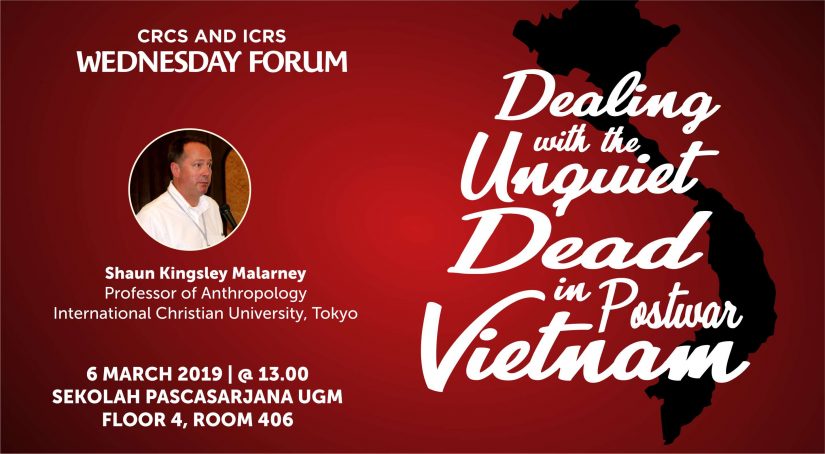
In the period from 1946 to 1975, Vietnam experienced decades of warfare that resulted in millions of Vietnamese deaths. Among these victims were hundreds of thousands who experienced deaths culturally regarded as “bad deaths” by the Vietnamese, especially deaths in which family members did not immediately or never received the victim’s corpse. Such individuals fit with Robert Hertz’s concept of the “unquiet dead.” This talk will explore the multiple ways that Vietnamese individuals and families have, either through traditional or innovative cultural practices, sought to bring peace to their family members who died in Vietnam’s wars.
Shaun Kingsley Malarney is Professor of Anthropology and Director of the Graduate School Public Policy and Social Research Program at International Christian University in Tokyo, Japan. The author of Culture, Ritual and Revolution in Vietnam (2002), he has published extensively on ritual and religious change in Vietnam in the revolutionary and post-revolutionary periods.
Look at the full poster of this event here.

